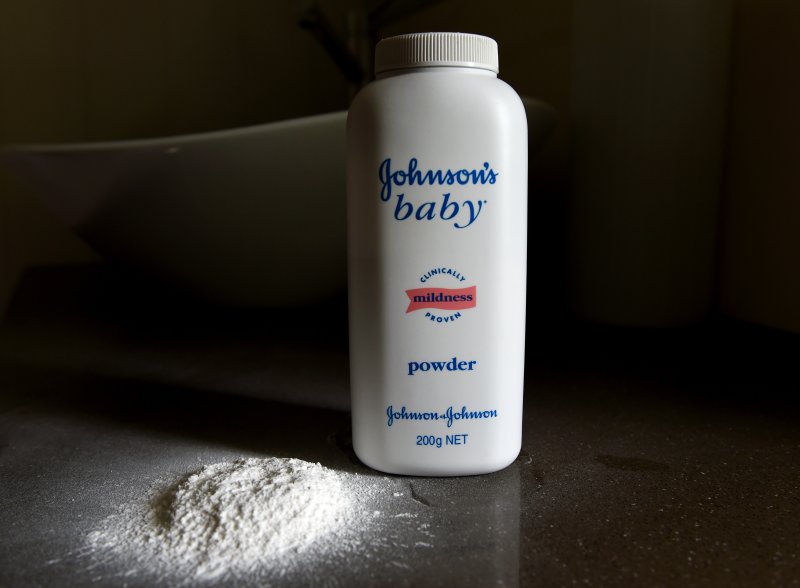On Thursday, a St. Louis jury said the company must pay $4.7 billion to 22 women who developed ovarian cancer after using its baby powder. The company says it plans to appeal the verdict. File Photo by Dan Peled/EPA
July 12 (UPI) -- A St. Louis jury on Thursday said Johnson & Johnson must pay $4.69 billion to 22 women who said asbestos in the company's talcum powder caused them to develop ovarian cancer.
The verdict came shortly after the jury awarded $550 million in damages to the women. After announcing that award, the jury deliberated further and added $4.14 billion in punitive damages against the company.
The company said it was "deeply disappointed" with the verdict and plans to appeal because of a "fundamentally unfair process," The Wall Street Journal reported.
The $4.69 billion award is the largest jury award in the United States this year, Bloomberg reported. Before Thursday's decision, the largest was a $1 billion award given to a sexual assault victim in Georgia.
More than 9,000 lawsuits have been filed against Johnson & Johnson due to allegations of health problems caused by asbestos in its talcum powder products.
In some cases, large settlements have been overturned, as was the case in October when a Los Angeles judge overturned a $417 million settlement against the company on grounds that "serious misconduct" was allegedly committed by a jury.
But several other settlements have been affirmed with more cases pending.
According to the American Cancer Society, the science on whether talcum causes cancer is still unclear.
"American studies of personal use of talcum powder have had mixed results, although there is some suggestion of a possible increase in ovarian cancer risk," the organization says.















